BANK OF ALBANIA
PRESS RELEASE
Governor Sejko addresses end-of-year meeting with journalists and media representatives and Governor’s Award ceremony
Publication date: 20.12.2021
On 20 December 2021, the Governor of the Bank of Albania, Mr Gent Sejko, met with renowned publicists, experts of politics and economy, journalists and representatives of the print and electronic media on the occasion of the traditional end-of-year event.
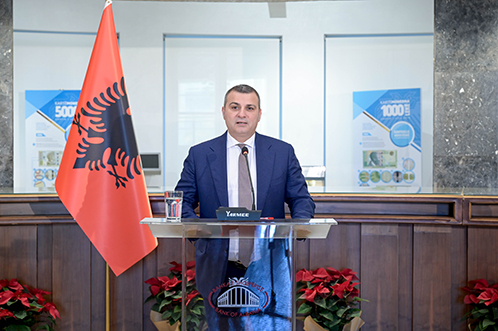
In his welcome address, Governor Sejko thanked the media representatives for participating in this event, while pointing out, the special value of this reunion at the Bank of Albania’s premises, in order to spend some time together as the year end approaches.
Mr Sejko extended his gratitude to the media for the readiness, objectivity and seriousness showed in covering and broadcasting to the public the activities of the Bank of Albania throughout 2021. The professionalism in making and conveying the news and economic analysis are a valuable support, which has given an essential contribution to price and financial stability.
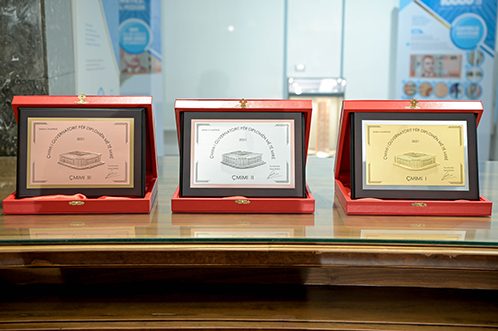
In conclusion, Governor Sejko reiterated and re-affirmed that the Bank of Albania will continue to be a transparent institution, ready to provide opinions and assessments in all public debates, related to the performance of the country's economy and financial markets.
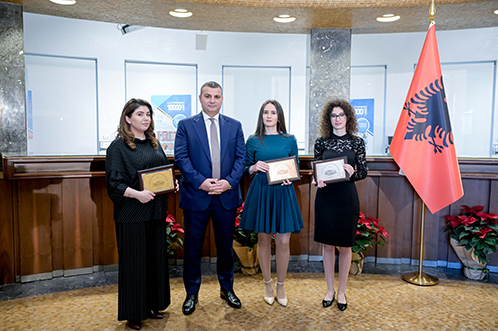
During the end-of-year event, the three winners of the “Governor's Award for the Best Diploma Thesis 2021” were announced. This competition is organised every year by the Bank of Albania and is dedicated to Albanian students graduated in the country and abroad.
Financial education and research work are continuously in the focus of Bank of Albania's activities, as a preliminary condition in the socio-economic development of the country and the enhancement of its citizens’ well-being. This is the 15th year that the Bank of Albania selects and evaluates three research papers prepared by the Albanian students graduated in Albania and abroad, for scientific research on issues related to the integration, economic development, international monetary economics, price and financial stability etc.
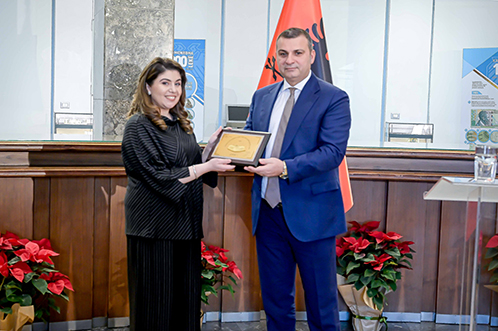
The first prize was awarded to Ms Ervi Kosta, student of Master of Sciences at the Faculty of Economics and Agribusiness, Agriculture University of Tirana, elaborating on the topic of: “Diversification of income and its impact on the financial performance of commercial banks.” This prize was awarded by the Governor of the Bank of Albania, Mr Gent Sejko.
This topic is unique because of the analysis conducted - thanks to the regressive assessment of the panel type - on the connection between the financial performance of commercial banks and the diversification level of their income. The analysis conveys that there is still more work to be done by the commercial banks, as regards the system's profitability through income diversification.
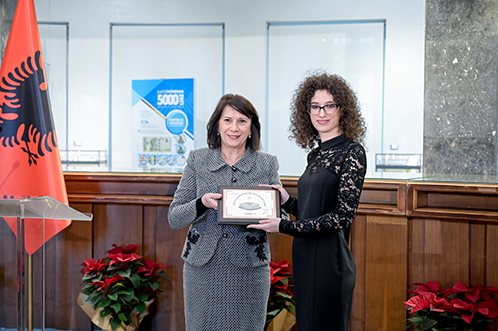
The second prize was awarded to Ms Marina Poppa, student of Master's Degree on Economy Development at City University, London, for the study on: “Assessing the role of the macroeconomic and institutional environment in the performance of micro-financial institutions in Albania."
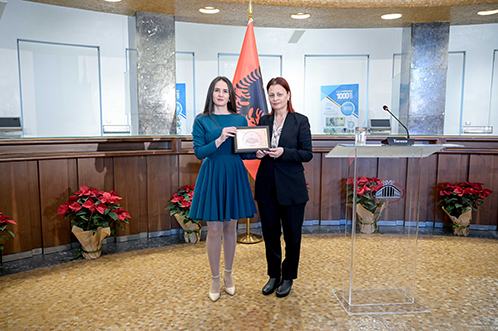
Her research work analyses the activity of micro-financial institutions in Albania, which is key in stimulating lending to those segments of the population less engaged in the economy - such as low-income residents and those living in rural areas. The rate of the financial inclusion of the population is a direct indicator of the level of entrepreneurship in the economy, and micro-financial institutions play a decisive role in stimulating this engagement.
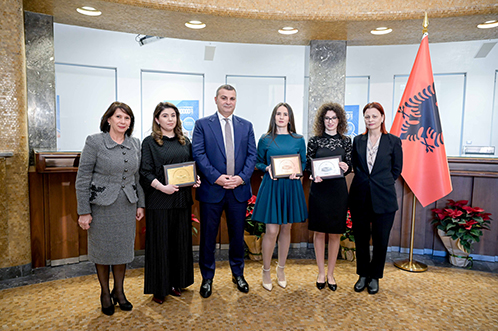
The third prize was awarded to Ms Kristjana Proko, student of Master of Sciences at the Faculty of Economy at the University of Tirana, for the study on: “Optimal taxation on wage revenues – the Albanian case.”
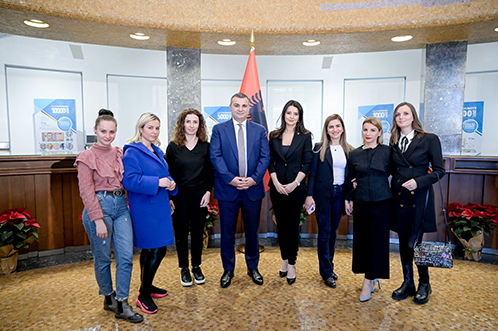
This research thesis focuses on the persistent and insatiate debate in the area of economic and political decision-making in Albania. The data was modelled in three versions, presenting solid and evidence-based conclusions in relation to the optimal level of taxation on personal income. The author draws the conclusion that the actual progressive system generates the highest level of public revenues, and that the optimal taxation average is comparable with the taxation rates on the currently applied revenues.
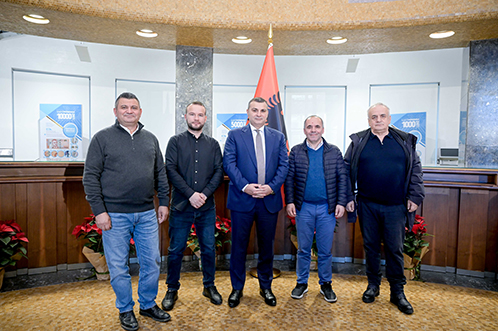

 Linkedin
Linkedin
 Twitter
Twitter
 Youtube
Youtube
 Facebook
Facebook
 Flickr
Flickr
 RSS
RSS
 Subscribe
Subscribe
 Feedback
Feedback